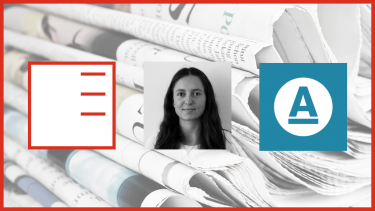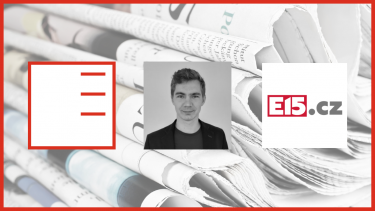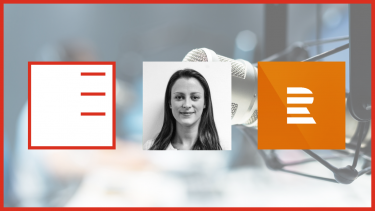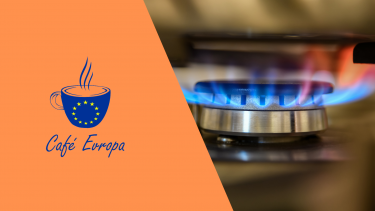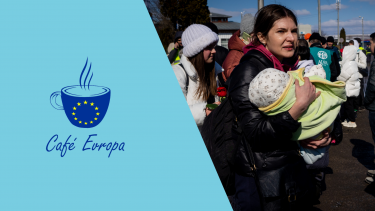Aktuálně.cz: How to reduce dependence on Russia: Europe and others tackle gas, oil and coal cuts
Our researcher, Kateřina Davidová, commented for Aktuálně.cz on the latest package of sanctions against Russia by the European Union. According to her, the biggest impact on the Russian economy would be the restriction or ban on the purchase of mineral resources from the largest European customers or even from the whole European union. The best alternative to these energies would be to switch to renewable energy sources, says Kateřina Davidová.
Show more
E15.cz: Electromobility in the shadow of war - why to deal with raw materials now?
Our research fellow Michal Hrubý wrote an article for the news portal E15.cz about electromobility in the shadow of war. The article details to what extent the conflict in Ukraine has affected the energy market, what issues we need to focus on in the coming months and what should be the key to achieving so-called raw material security.
Show moreČRo Plus: The elections in Serbia are won by President Aleksandar Vučić and his Serbian Progressive Party. How fair were the elections?
Our research fellow Jana Juzová spoke on Czech Radio Plus about the elections in Serbia, which did not go according to all standards. Various electoral fraud and voter intimidation occurred during the elections. An important factor in the Serbian elections was the situation that preceded it. It was also discussed what the victory of Aleksandar Vučić and his party would mean for the future of the country.
Show moreČT24: EU leaders negotiate with Chinese leadership
EUROPEUM Institute analyst Alexandr Lagazzi spoke in the program Studia ČT24 about the summit between the European Union and China, which dealt with mutual future relations and economic ties. The conflict in Ukraine was the main topic of discussion on the EU side. It was China's hesitant stance and reaction to economic sanctions against Russia that was addressed, as well as China's rejection of NATO.
Show more
E15.cz: Orbán emptied the state coffers before the elections. Next government will have to cut back
Réka Sulyok from the Institute for European Policy EUROPEUM described for news server E15.cz the current political developments in Hungary in the context of the upcoming parliamentary elections. The article discusses in more detail the position Hungary could potentially find itself in after the re-election of the current prime minister Viktor Orbán or, on the contrary, the consequences of a possible victory of the opposition candidate Péter Márki-Zay.
Show moreEURACTIV: It's gonna get worse. We need to prepare for the impacts of climate change, and fast
Our researcher Kateřina Davidová wrote a commentary for Euractiv.cz on climate change and its impacts.
Show more
INVITATION: Café Evropa online: The future of European energy - how to ensure stable and clean energy sources without Russia?
We would like to invite you to the Café Evropa debate on 21 March at 17:30 on the topic "The future of European energy - how to ensure stable and clean energy sources without Russia?". The Russian invasion of Ukraine has, among other things, further fuelled the question of energy security in the Czech Republic and the EU and the future of energy in our country. The current security situation points to the need to diversify energy sources as soon as possible, i.e. to secure energy supplies from different regions and countries in order to avoid excessive dependence on Russia. There are also views in the public debate that coal extraction could be temporarily increased, which would enable some countries to cover any shortfalls in resources. Is a complete or even partial halt of Russian gas supplies to the Czech Republic and the European Union a realistic option? What impact would this have on our energy security? How much further increase in energy prices can we expect in this case? How should EU countries react and help households and industry cope with the expected increase? Could a possible temporary increase in coal extraction mean a return to fossil fuels and the end of the EU's climate ambitions? Or could the current problematic situation further accelerate the energy transition?
Show moreINVITATION: Café Evropa online: Ukrainian women with children fleeing war - how can we help?
We invite you to a debate within the Café Evropa series, this time on the topic "Ukrainian women with children fleeing war - how can we help?". The debate will take place on 28 March at 17:30. You will be able to follow the debate online on our Facebook page.
Show moreINVITATION: Café Evropa online: EU Digital Package - how will it affect online services in Europe?
We would like to invite you to a debate "Café Evropa online: The EU Digital Package - How will it affect online services in Europe?". The debate will take place online on 31 March at 17:30. The debate will be in Czech and you can watch it on our Facebook page.
Show moreReport: EU – Pacific Talks: H2 – Hydrogen Hype
David Plhák wrote a report from the EU - Pacific Talks debate on: H2 - Hydrogen Hype. The debate outlined the current state of the hydrogen economy and its role in the EU, Czech Republic and Japan's efforts to achieve climate neutrality and reduce energy dependence on hydrogen.
Show more PDFStaroměstské náměstí 4/1
Prague 1 - Staré Město
110 00
tel.: +420 212 246 552
email: europeum@europeum.org
https://www.europeum.org
